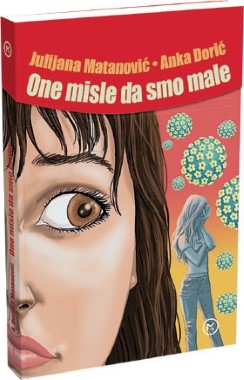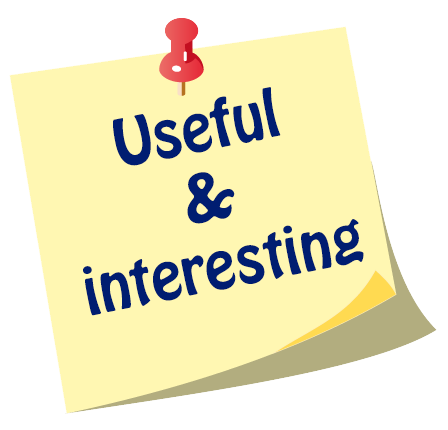
Selected stories and methodologies!
Title of Activity - They think we're small
Description of educational activity
Description of activities:
Duration: two school hours (90 min.) + Afterwards: lecture by a medical school doctor (45 minutes)
Pupil's age: 1st class high school (15-year-olds)
Class organization: classroom and division of students into groups and debate groups. work in groups, debate.
Objective: to motivate students to read the contemporary text about growing up where they will think about their own realities and their critical thinking about the issues that the text opens. The aim is to develop students' verbal and written expressive skills, ability to argue and debate.
Educational activities
A. Before reading
At the beginning of the school year students should choose one book by their choice found in the school library. The book is not in the list of lectures. Meanwhile, Croatian language teacher agrees with the librarian to offer them along with other books Juliana Matanovic's book as well, They think we're small. The pupils inform the teacher which books they have chosen to read. Everyone has the same task - to present the book to other students in the form of ppt or posters in 3 minutes.
The teacher also arranges with the Medical Service and Physician of the School Medicine the 1st workshop of the ZOO on sexually transmitted diseases and the protection where the part of the workshop relates to vaccination against HPV.
B. Reading activity
First Hour: Motivation begins by introducing a book They think we’re small (students who read the book in full).
The teacher shares a fragment from the novel when Matija, the main heroine, learns that mother Vjera is ill and has to go to a cervical surgery because she has CIN 3 and the teacher shares the fact that the 15-year-olds (neither Jurica nor Matija) know nothing about it and search the data on the Internet .
Pupils are divided into groups (6 groups per 4 or 5 pupils). Their job is to read the fragment and write down what they know about HPV and cervical cancer. Data can also be searched on the Internet.
The second part of the task is to exchange data in a group and write down on a piece of paper that they will later stick to the message board or writing board.
Second Hour: the preparation for the debate is next. Students stay in groups. The task is: Young people should be vaccinated against HPV.
First everyone writes for themselves an argument for and an argument against it. After that, they present their arguments in the group and select a hot pencil as one student represents their group argument.
The last part of the debate is: students take a sheet from the teacher’s desk (eg. one is red and the other is blue). Red represents an affirmative group, and blue is a negative one.
The students make their arguments and start the debate. The first argues the argument negative (60 seconds) - the opposite of his group replicates (an affirmative argument of arguing negative arguments, asking questions that are trying to contradict him and weaken or break his arguments, time for questions and answers 90 seconds), followed by the first debatant of the other group, and its first group repeats itself in a row. This is how all three debates are made.
Then comes the final word. In the end, there is an evaluation sheet in which the questions about hourly activity and the issue of vaccination are being followed.
C. After reading
The teacher and students who read the entire book remind other students to take the book in the library and find the medical-scientific part of Dr. Anka Dorić about HPV.
If it is possible to arrange a lecture with a school doctor, students will receive additional information on STDs and HPV.
Workspaces: worksheets with the novel excerpt, note papers, evaluation sheets, Internet (student cell phones), color paper
A fragment from the novel One thinks we are small (pp. 100-106)
Evaluation and Assessment Methods: Students at the end of the semester meet the evaluation list, independently present their arguments and attitudes.
The Impact of Reading Activity on RSP: The idea to independently elect, discuss and express their opinion that the theme related to their upbringing leads to trust in reading and motivation to read the whole work.
Connection to curriculum
Connection to curriculum of Health education (1st class high school) (http://www.azoo.hr/images/razno/Kurikulum-1-4-razred-SS-FINAL-s-ispravkom.pdf)
Developing skills neccessary for responsible sexual behavior, I. and III.
Aims: Making students aware of responsible sexual behavior and making them realize, face, and think about advantages and disadvantages of every possibility in sexual behavior.
Connection to literature in 1st class (literary-theoretical terms):
Aim: applying the acquired knowledge in literature (a text which is a novel – a romance story in which the main character is a 15-year-old girl who with the standard language uses a jargon as well – a novel of growing up, and a medical-scientifical document)
Knowledge:
- Independently approach the text from different points of view
- Learn how to start a discussion and ask questions
- Develop an easy reading
- Improve the reading with comprehension skill
- Organize and systemize different types of information
Skills:
- Notice, oppose, extract and comment differences and similarities in the text
- Develop the skill of predicting and imagining different outcomes
- Develop and increase communicational skills
- Systemize, conclude and evaluate
- Learn to efficiently, independently and equally work in a group
Competences:
- Make connections between the situations in the book and real life or personal experience
- Be possible to imagine, combine and intervene in the text
- Follow the instructions and tasks, be able to evaluate
- Assess evidence and arguments, argue the choice
Bibliographic reference to be used during the activity
- Publisher: Mozaik knjiga
- Year of release: 2014 (first edition: 2010)
- ISBN: 9789531408318
- Binding: Soft
- Width: 128
- Height: 190
- Pages: 208
- Roman/Novel: fiction
- Literature for children and young people

Short description of digital sources
https://issuu.com/gorances/docs/one_misle_da_smo_male
http://www.vasezdravlje.com/obavijesti/opsirnije/530/
https://bib.irb.hr/prikazi-rad?rad=645620
Results/ What we learned – Outcomes
Students will discuss and debate about socially relevant issues. They will develop collaborative skills, listening and speaking skills, they will learn to argue and critically consider the issue.
Reccomendations
Choosing a method of teaching and a suitable text affects the increase of the student's interest in reading and studying the interpretation. Independence in work, effective co-operation, involvement in discussion and appraisal encourage interests and develop analytical and synthetic skills. The text can be adapted to the possibilities and interests of the group according to the profile of the RSP reader group. The more active approach and the smaller text fragments offer a more interesting, dynamic way of reading and studying a literary work.
Contact
X gimnazija ''Ivan Supek''
Ul. Vjekoslava Klaića 7
10000
Zagreb
E-mail: partners@handbook4rspreaders.org










